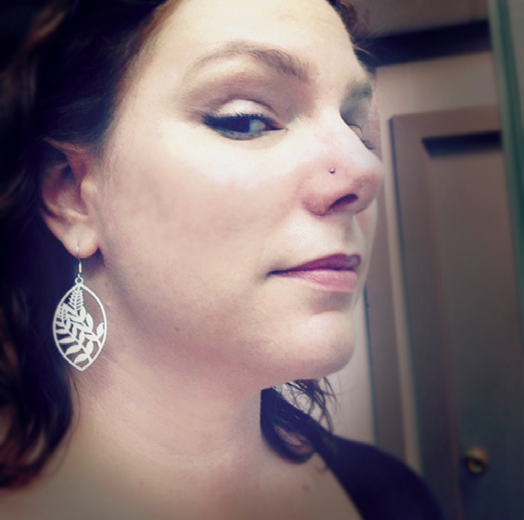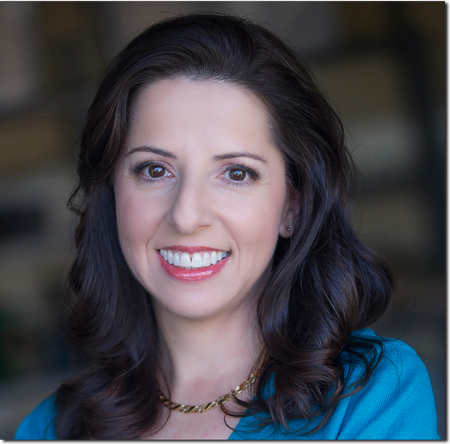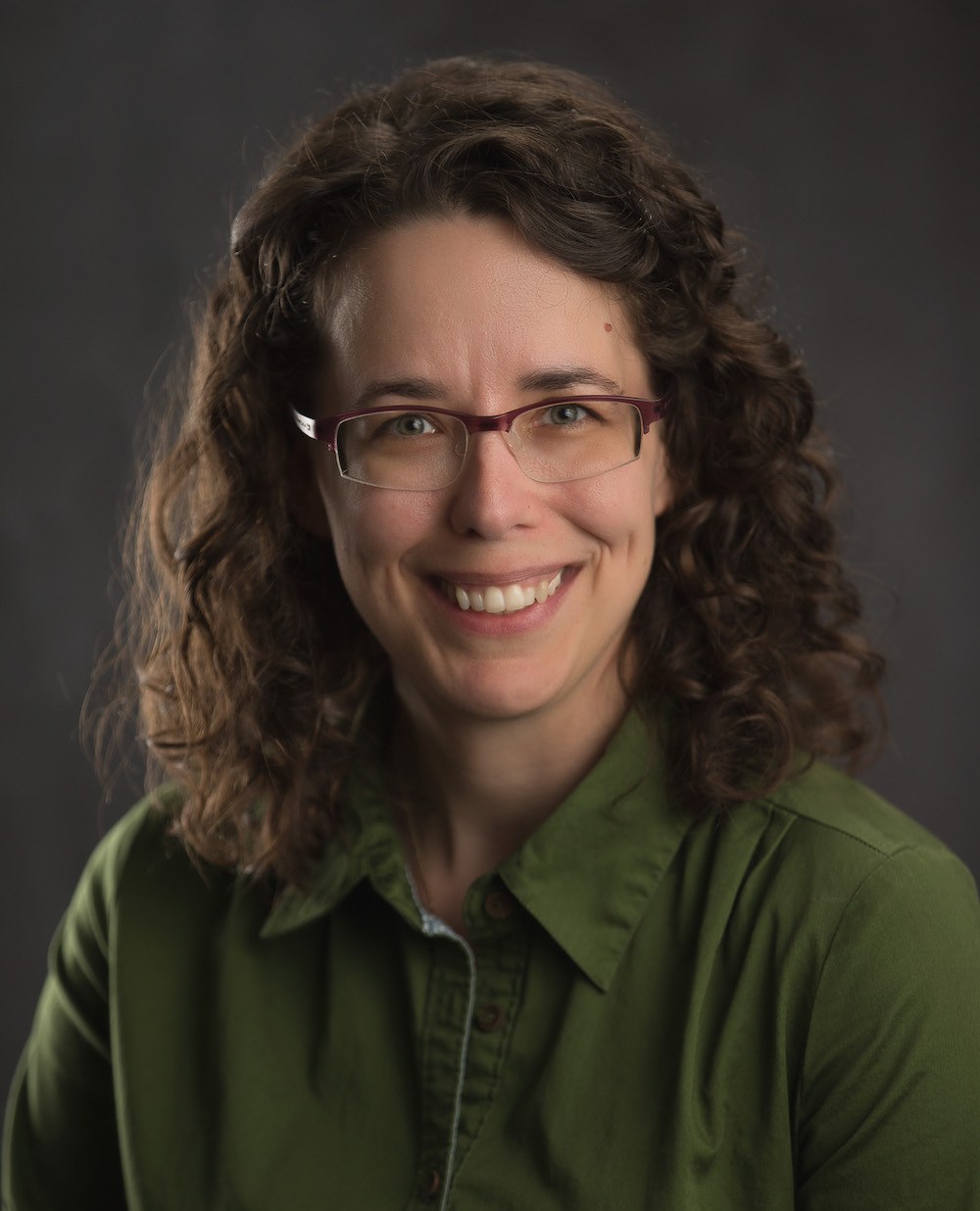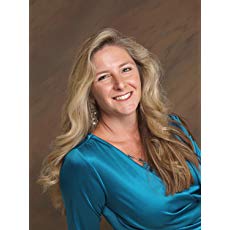
Author Lucienne Diver is nothing if not versatile: successful agent by day, YA author by…well, in every other moment she can possibly fit in. I sat down with her recently to talk about how she balances her agenting responsibilities with her flourishing writing career, the state of the industry, and the biggest mistake most aspiring Young Adult authors make.
Open Mic: You’re newest book, “The Countdown Club,” came out in December. Tell me a bit about it.
Diver: It’s a young adult suspense novel. Imagine five kids arriving at school to discover notes with deadlines to their deaths. Two days to die. Six days to die. Twelve days to die. They’re very different kids from a variety of backgrounds. Some know each other, some don’t. They take the threats with varying degrees of seriousness…until the first boy dies. Then, of course, they take them very seriously. Some are part of a forensics club that’s formed on campus called “The Meddlers”– after Scooby Doo and those meddling kids – and they bring the others in. Together, they work to figure out who’s behind things before anyone else dies.
Open Mic: The Young Adult genre has really grown in popularity in recent years. What has spurred this growth?
Diver: Since I’m also an agent, I have the perspective of seeing the trends come and go. So often it’s a special book or series that really sparks for people in a certain area and then explodes it. In YA, J.K. Rowling’s Harry Potter series – even though it’s a different genre, fantasy – really exploded the middle grade and young adult fields. It let people know that this wasn’t exclusively for young adults. Previous to that we kind of lost kids or teens at a certain age because they were reading adult books. That’s fine, but I think the perception was that YA was not for them; they were past that. But the explosion of the readership, and the fact that everybody, everybody was reading these books made it clear that YA didn’t mean juvenile. Not at all.
Open Mic: What are some of the parameters in YA that someone new to the genre need to understand before they start writing their story?

Diver: I think the most important thing to understand is that you’re not trying to talk down or to preach. As authors we obviously have something to say and we should say it, but it shouldn’t come across as imparting our wisdom or teaching a lesson. As with any writing, you have to get into the right mindset and become the characters, to go through what they’re going through and present it accurately and authentically.
If you’re not around teens or don’t understand teens and the social climate they’re in today, then you have to get to that point or you’re not going to be able to write young adults realistically. They can smell a fraud from a mile away. Making the connection, becoming your character, is the most important thing about writing young adult or any fiction.
Open Mic: At my age, I think it would be very challenging to put myself into the head of a YA-appropriate character and to get all the aspects of a modern day young person correct. How do you keep up with that age group so you can be sure your characters and storylines are going to appeal to that audience?
Diver: I have a teenager, so that helps. I don’t use any of her experiences directly, but I do see what she goes through and I use the emotion rather than the actual events. And not just the emotion, but the social media outlets she’s on and some of her language and things like that. We all go through drama, particularly at that age, when everything is so real and so raw. I think a lot of us … I don’t want to say we left something of ourselves behind there necessarily, but we can access that point in our life because it was so immediate. For me, I have this voice in my head that’s just constantly going ‘oh remember this thing you did or when this thing happened and wasn’t that awful?’ It never really goes away. On the positive side, I think that sense of wonder and newness and always being able to look at something with fresh eyes helps as well. There’s a world-weariness, even at that age ⸻ a lot of “been there done that, bought and discarded the t-shirt” ⸻but there’s also so much you’re experiencing for the first time. You have to be able to tap back into that time, those heightened emotions, because there isn’t the perspective of experience that what you’re going through is survivable and that this too shall pass.
Open Mic: That said, YA books have a long history of confronting social and other issues faced by young people. Is there anything that is socially taboo now?
Diver: I think it’s all in how you approach it. You can explore just about anything, but you have to be cautious. It can be a fine line to present awful things realistically, but also in a way that doesn’t damage the reader. You want to be able to show that people can emerge from abuse or trauma, but without triggering anyone who’s gone through what you’re writing about. You want them to be seen and represented, but ultimately uplifted rather than hurt by what you’re writing. It’s an important awareness whether you’re writing for adults or young adults, but the younger the reader, the heavier the weight of that responsibility.
You also have to realize that some subjects will be steered away from by some publishers that want to target more book clubs and Middle America.
Open Mic: Some of your work has also dealt with bullying. Tell me a little bit about that focus and how it impacts your writing.
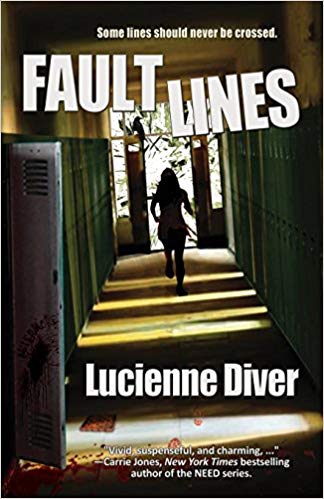
Diver: That is one of the things closest to my heart. Every time I read a story of somebody committing suicide because they’ve been bullied, it breaks something in me. My daughter was bullied, and I see the impact it had on her and how it changed her personality. We are addressing it more now, in fiction and reality, but it’s a difficult thing because so often kids don’t talk about it. They feel the need to handle things themselves, or they feel some shame attached to it, or they’re afraid the adults in their lives will make it worse by dealing with it, that the bullying will increase because they told someone. Part of the reason I address it is so that kids know that they’re not alone. My last novel, “Faultlines,” dealt with people who were left behind by a girl who committed suicide and how willing they would have been to help if only she had reached out and if only they had known. I really want kids to understand that they can reach out. They can talk and they can get help and they should not try to carry the burden alone. No matter what their perception is at the time, there are people who love and value them beyond imagining and who would be absolutely devastated by their death and blame themselves.
Open Mic: You also use a lot of humor in your writing. Does that come naturally to you?
Diver: Yes, though you wouldn’t know it from this interview because I’m talking about some pretty weighty things! But yeah, I’m kind of a sarcastic wench and that does come very naturally. Actually, reining it in sometimes is more difficult. When I started writing YA suspense as opposed to my snarky paranormals, I actually had to weed out a lot of that to get the tone right. I still have at least one sarcastic or class clown character to relieve pressure in my stories.
Open Mic: As both a writer and an agent, what is the key to a good YA story? Do you see them as generally more plot-driven or character-driven?
Diver: I think it’s mostly about the characters and their emotional arc. It’s about plot as well, of course, but the most important thing is to really climb inside somebody’s head and show us firsthand what they’re going through. It has to really be about something, an issue or an emotional journey. I see a lot of first efforts where people want to save the kids and can’t bear to put them in danger. But the important thing is that the teenagers in these books need to find their own answers and solve their own problems, which is very true to experience, since most kids won’t ask for help or tell the adults in their world what’s going on. They don’t want somebody to come in and solve their problems for them. They need to solve their own problems and come up with their own answers.
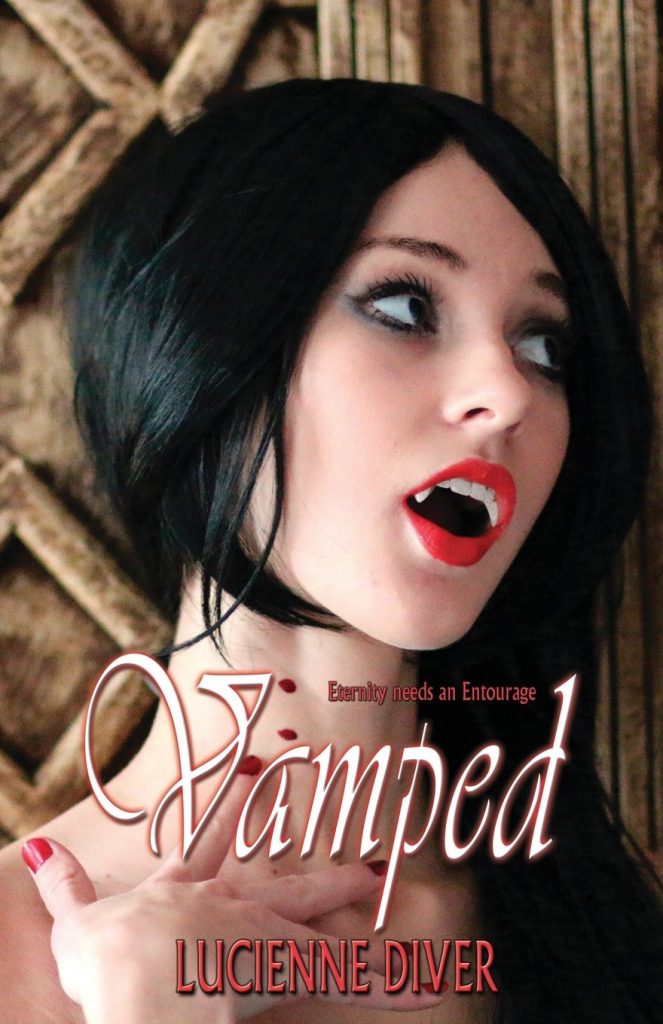
Open Mic: You are an agent and an author. Both of those are very time consuming occupations. How do you manage your time to ensure you are able to give each your best effort?
Diver: It helps to be a workaholic, which I am. Any moment that I’m not doing something productive feels like a wasted moment. So I wake up and I write for about an hour before I go into the office and I find that’s my best time because my agent-brain isn’t on yet. My critical brain hasn’t engaged, so if I were to sit down and write a letter to an editor, it wouldn’t go anywhere. But it’s the perfect time to channel my characters, because I get out of my own way. I don’t second guess or critique myself. So I use that time when I wouldn’t be productive for business first thing in the morning. Then as soon as my brain flips over to, “I have to do this and I have to call that person,” the writing is over. I’m in the office the rest of the day and reading in the evenings and on the weekends. If ever I’m swamped and anything gets shifted aside, sadly, it’s my writing. If all of my authors turn in books all at once and they’re all rush reads or something like that, then I’m reading in the morning instead of writing. My family is used to not seeing me for hours on end, which is good. When my daughter was young she was a huge reader, so she’d come in and curl up next to me with her book and it was the cutest thing in the whole world. Now she’s off playing her video games, which she doesn’t need me for anyway, so she doesn’t even miss me.
Open Mic: Is one of those careers more satisfying than the other?
Diver: No, they’re both really satisfying in different ways. I’ve written since I was eleven, and I can’t not write. It’s really satisfying to me when I finish a book or write a good scene or solve a plot issue that I’m having. That’s tremendously rewarding. But as an author, I’m neurotic. I’m not confident. I am constantly questioning myself and it’s a very stressful thing. Not that agenting isn’t stressful, but I’ve been an agent for 25 years. I’m a lot more confident, I know what I’m doing, I feel like I’ve got this. And then every one of my authors’ successes feels like a success for me too. And there are so many more of those because I work with 47 authors. Somebody is always hitting a list or winning an award or getting an offer or something like that. I’m a deal junkie, so every time a deal comes in, it is just the best thing in the world.
Open Mic: What are some of the big mistakes you see aspiring YA authors make in their approach to you as an agent?
Diver: I think a lot of people go on submission before they’re ready. They’ll go out with their first novel, which is not necessarily a bad thing, because some people have sold their first novels, but it’s rare. Usually, the first novel is a learning experience and a place to find yourself as a writer – what POV is most comfortable, what tense? How do you introduce information seamlessly, without it sounding stilted or essay-ish? It’s often not the most creative or risky work. Usually the first several ideas that come do so easily because they’re commonplace and comfortable. They’re not terrifying to tackle. But it’s important to push on and get to a place where your work and your voice is unique.
Insecurities can stop us as writers, but they can also make us pause and seek help, which can be a very good thing. Writers are often too close to their work to see their own weaknesses. We know what we mean to say, but have no idea if we got it across. Writers groups and critique partners, feedback and revision are important for getting a work to the next level.
As an author, I have the voice of every editor and critique partner I’ve ever worked with in my head, and it keeps me from making the same mistakes I’ve made in the past. Every single person who critiques you, as long as it’s the right kind of critique, makes you a better writer, because their input sticks with you beyond that book.
Open Mic: Do you ever see yourself writing adult suspense novels?
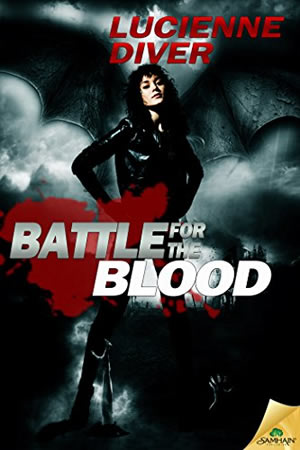
Diver: I’m actually writing a horror novel right now. It’s generally whatever idea comes to me, and all of my straight up suspense ideas are YA. I don’t know why I feel the need to put children in danger – that sounds awful – but I think it’s because I find it so satisfying to have solutions to things. That’s what a mystery is about – a solution and the right person being caught. It’s satisfying in a world where there often isn’t that kind of closure or resolution.
Open Mic: There has been a lot of controversy in recent years over social aspects of the YA genre, specifically books like “The Black Witch” and others that have drawn criticism for alleged racism or other perceived offenses. Has all of this changed in any way how you approach agenting YA books?
Diver: Yes, it has changed the genre a lot. For years and years and years things have been more or less from a certain perspective. Now we’re really looking for more diverse voices, and people telling their own stories for a more authentic experience. Because, here’s the thing. Language matters. Perspective matters. For a long time, when women or minorities or people with disabilities were represented, it was as a token character, often a friend or sidekick or someone without agency, maybe who had to be rescued or healed or whatever to be seen as valuable. People don’t even necessarily realize what biases they bring to a work, and that matters, because fiction affects the way people think about things, influences the cultural conversation. That’s part of its purpose – to say something. To entertain and to pass time, of course, but also to engage and make people think, care. We’re in an especially fraught time right now, so it’s especially important to consider not only what you mean to say, but what you’re actually saying and how things are coming across. Sensitivity readers can be very important to address problems of expression or perception.
Open Mic: Having authenticity screeners who can point out to you that something in your story is not right from a cultural perspective seems like a really smart thing.
Diver: I also think, though, that if you’re not part of the community that you’re writing about or an experience that you’re detailing, maybe it’s not your tale to tell. Maybe it’s somebody else’s story to tell because they can do it with authenticity that you can only guess at.
Cards on the table, my daughter is transgendered. We’re part of a wonderful support group, and have been going through all of this with her for a few years now. People have asked if I would you ever write her as a character, and the answer is “no”. First, because I wouldn’t be comfortable using her experience this way. But most of all because even as a parent seeing her realizations and struggles firsthand, I still can’t fully fathom what she’s going though. Every day I find more gaps in my knowledge. Things I take for granted that she doesn’t, can’t, for her own safety.
And from attending the support group and listening to others, they wouldn’t want me to tell their stories, not in that way. I could write as the parent of a transgendered teen, I could write a transgendered character, but I couldn’t accurately represent her experience, because I haven’t lived it. I wouldn’t do it justice. So to an extent we have to leave room for stories to come from the people they belong to rather than for those voices to be shut out because publishers feel that they already have their book dealing with X or Y, even if it’s not from the point of view of someone who’s lived it.
We need to represent everyone to the best of our abilities, but in such a way that we don’t usurp anyone else’s story.
Open Mic: I like to end on what I hope is a fun hypothetical question. Let’s say I can put you together for dinner and a conversation with just one of the following three people. Your options are: actress and activist Ashley Judd, author J.R.R. Tolkien or comedian Ellen DeGeneres. Who would you choose and why?
Diver: That’s a tough one. Ashley Judd would be a close second, but I love Ellen DeGeneres. I like what she has to say, I like the way she says it, and humor goes a long way to making things go down easier. I love her to pieces, so I’d have to choose Ellen.

